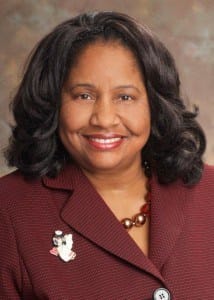 By Mary Gullatte, PhD, RN, ANP-BC, AOCN®, FAAN
By Mary Gullatte, PhD, RN, ANP-BC, AOCN®, FAAN
As I reflect on the honor the ONS membership bestowed on me to serve as your president for the past two years, I want to remind you of my goal to inspire every oncology nurse to lead from the future. As we face the tides of change in our workplace and even within our professional association, it is clear that strong, visionary, and innovative leadership and succession planning will be required to chart the course for our future.
ONS has initiated several innovative changes over the past few years to position the Society for a better, stronger, and sustainable future. Peter Drucker defined management as “doing things right” and leadership as “doing the right thing.” It takes courage to act on a vision and to do the right thing when it may not be the most popular course of action. This is particularly important for board governance leadership. Governance leadership should focus on strategic thinking and visioning, rather than day-to-day operations, when a board has staff to manage operational decisions with board input as warranted.
Many of the challenges chapters face are universal, such as how to recruit younger members, grow membership, engage members to step up to chapter leadership, and navigate through the Sunshine Act’s implications for support for continuing education programs. The ONS staff, with member leader input, designed the annual Chapter Leadership Weekend to be a venue for benchmarking, networking, and exchange with each other to share best practices around these issues. It also offers sessions on board governance to help chapter leaders develop a high-functioning board. Each ONS chapter should send representatives to this event in Pittsburgh each year to share ideas and knowledge.
Leadership succession is a key strategy of sustaining vibrant and viable boards at the local and national levels. Pay attention to leadership competencies, attributes, and strengths needed when seeking new board members. A diverse makeup of members is necessary to sustain a vibrant board. Diversity is not only about race and gender but also age and experiences. The board should develop a succession plan that includes identifying and mentoring future leaders.
Oncology nurses are positioned to embrace the rising tide of change as transformational leaders through innovative vision, strategic thinking, and mentoring for succession planning. Leading through change will require a set of defined competencies to shape our oncology nursing future to transform cancer care.
Mary Gullatte, PhD, RN, ANP-BC, AOCN®, FAAN, is the ONS president. For more information, visit www.ons.org.
Editor’s Note: Reprinted courtesy of the Oncology Nursing Society (ONS) from ONS Connect, March 2014, p. 9. Copyright 2014 by ONS.
Throughout the year, our writers feature fresh, in-depth, and relevant information for our audience of 40,000+ healthcare leaders and professionals. As a healthcare business publication, we cover and cherish our relationship with the entire health care industry including administrators, nurses, physicians, physical therapists, pharmacists, and more. We cover a broad spectrum from hospitals to medical offices to outpatient services to eye surgery centers to university settings. We focus on rehabilitation, nursing homes, home care, hospice as well as men’s health, women’s heath, and pediatrics.







